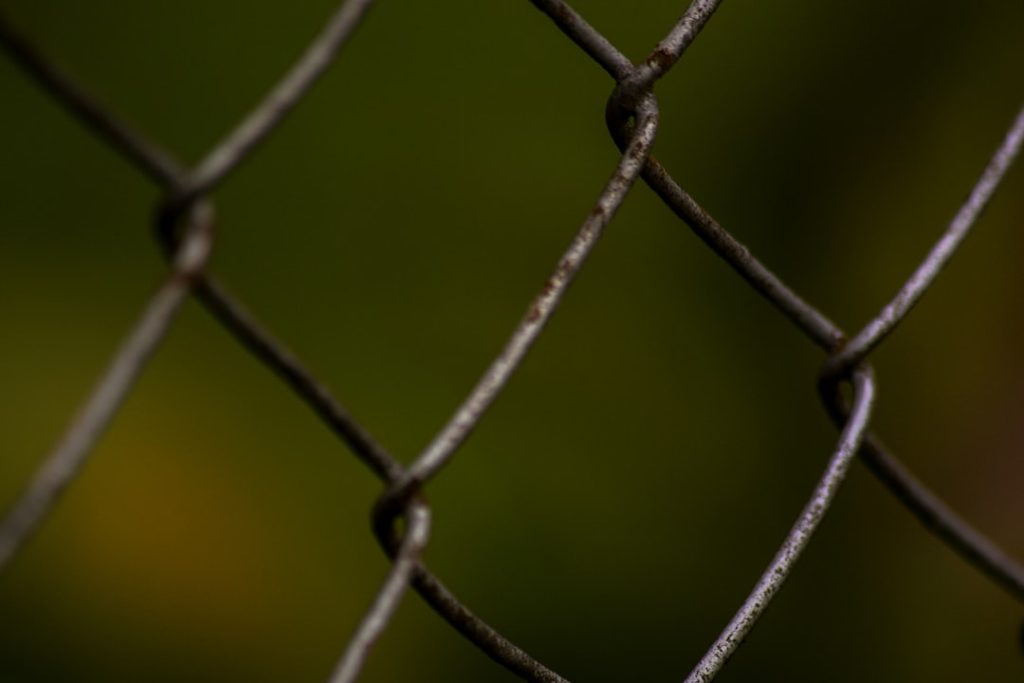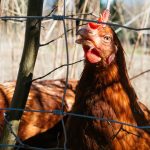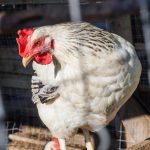Chickens are social creatures with innate behaviors that influence their interactions in captivity. They instinctively scratch and peck the ground for food and engage in dust bathing for hygiene and parasite control. These natural tendencies are essential considerations for backyard chicken management.
Chickens exhibit territorial behavior and may display aggression towards perceived threats, including other animals or humans. They are easily startled by sudden movements or loud noises, which can result in stress and unpredictable actions. Understanding these characteristics allows chicken keepers to better anticipate and address potential issues in a domestic setting.
Curiosity is another notable trait in chickens, leading them to explore their environment and test boundaries. This behavior may cause them to enter prohibited areas such as gardens or flower beds. Recognizing this tendency enables owners to implement preventive measures and minimize potential damage to their property.
By comprehending chicken behavior, owners can create an environment that accommodates the birds’ natural instincts while maintaining harmony in the backyard. This knowledge helps reduce conflicts and fosters a more positive experience for both chickens and their caretakers.
Table of Contents
- 1 Choosing the right type of mulch
- 2 Using physical barriers
- 3 Implementing deterrents
- 4 Creating designated areas for chickens
- 5 Providing alternative sources of entertainment
- 6 Seeking professional advice
- 7 FAQs
- 7.1 What are some effective ways to keep chickens out of my mulch?
- 7.2 Why is it important to keep chickens out of my mulch?
- 7.3 What are some natural repellents that can be used to keep chickens out of mulch?
- 7.4 How can I create alternative foraging areas for my chickens to keep them out of my mulch?
Key Takeaways
- Chickens are social animals and exhibit natural behaviors such as scratching, dust bathing, and foraging.
- When choosing mulch for chicken areas, opt for non-toxic options such as straw, wood shavings, or pine needles.
- Physical barriers like fencing and netting can help keep chickens in designated areas and protect them from predators.
- Deterrents such as motion-activated sprinklers or predator decoys can help keep unwanted animals away from chicken coops.
- Designating specific areas for chickens to roam and forage can help manage their behavior and protect garden areas.
- Providing items like hanging treats, mirrors, or perches can offer chickens alternative sources of entertainment and stimulation.
- Seeking professional advice from a veterinarian or experienced chicken keeper can provide valuable insights and guidance for managing chicken behavior and habitat.
Choosing the right type of mulch
Understanding Chicken Behavior
Mulch can be an effective tool for managing the behavior of chickens in a backyard setting. However, it is important to choose the right type of mulch that will deter chickens from scratching and pecking at it. Some types of mulch, such as straw or hay, may actually attract chickens due to their natural instinct to forage for food.
Effective Mulch Options
On the other hand, mulches made from materials such as pine bark or wood chips can be effective deterrents, as they are less appealing for chickens to scratch and peck at. Additionally, using mulch with larger particle sizes can make it more difficult for chickens to scratch through, further discouraging them from causing damage.
Considering Chicken Health
It is also important to consider the potential impact of mulch on the health of the chickens. Some types of mulch, such as cocoa bean mulch, can be toxic to chickens if ingested. Therefore, it is crucial to choose a safe and non-toxic mulch that will not harm the chickens if they come into contact with it.
By choosing the right type of mulch, chicken owners can effectively manage their behavior and create a more harmonious backyard environment for both the chickens and themselves.
Using physical barriers
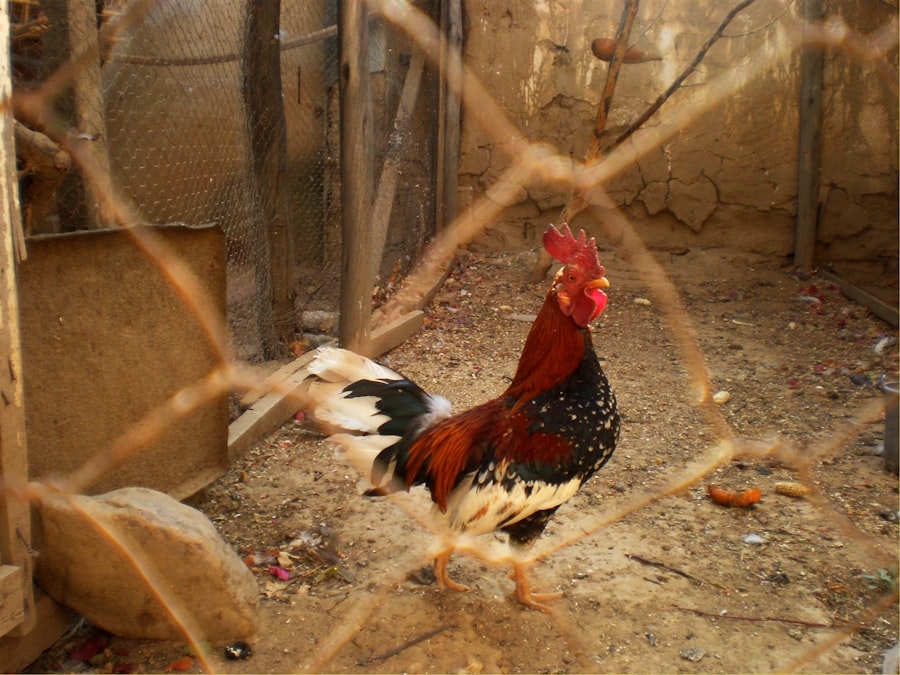
Physical barriers can be an effective way to manage the behavior of chickens in a backyard setting. Fences, for example, can be used to create designated areas for the chickens to roam while keeping them out of areas where they are not supposed to be. It is important to choose a fence that is tall enough to prevent the chickens from flying over it, as well as sturdy enough to withstand their attempts to scratch or peck at it.
Additionally, using chicken wire or hardware cloth can be an effective way to create smaller enclosures within the backyard, such as around vegetable gardens or flower beds, to prevent the chickens from causing damage. Another physical barrier that can be used to manage the behavior of chickens is a coop or run. These structures provide a safe and secure space for the chickens to roost at night and during inclement weather, as well as a designated area for them to exercise and forage during the day.
By providing a secure enclosure for the chickens, owners can prevent them from wandering into areas where they are not supposed to be and causing damage. Using physical barriers is an effective way to manage the behavior of chickens in a backyard setting, creating a more harmonious environment for both the chickens and their owners.
Implementing deterrents
In addition to physical barriers, deterrents can also be used to manage the behavior of chickens in a backyard setting. There are various types of deterrents that can be effective in deterring chickens from causing damage, such as motion-activated sprinklers or sound devices that startle the chickens when they approach certain areas. These deterrents can help train the chickens to avoid specific areas in the backyard where they are not supposed to be, reducing the likelihood of damage.
Another effective deterrent for managing the behavior of chickens is using natural repellents, such as citrus peels or garlic cloves, which can be scattered around areas where the chickens are not supposed to go. Chickens have a strong sense of smell and are often deterred by strong odors, making natural repellents an effective way to discourage them from causing damage. By implementing deterrents, chicken owners can effectively manage their behavior in a backyard setting, creating a more harmonious environment for both the chickens and themselves.
Creating designated areas for chickens
Creating designated areas for chickens to roam and forage can be an effective way to manage their behavior in a backyard setting. By providing a specific space for the chickens to exercise and explore, owners can prevent them from wandering into areas where they are not supposed to be and causing damage. This can be achieved by using fencing or other physical barriers to create a designated run or enclosure for the chickens, as well as providing them with plenty of enrichment activities, such as perches, dust bathing areas, and toys, to keep them occupied and stimulated.
In addition to creating designated areas for the chickens, it is also important to provide them with access to fresh food and water at all times. By ensuring that their basic needs are met, owners can help prevent them from becoming bored or restless and seeking out areas where they are not supposed to be. Creating designated areas for chickens is an effective way to manage their behavior in a backyard setting, creating a more harmonious environment for both the chickens and their owners.
Providing alternative sources of entertainment
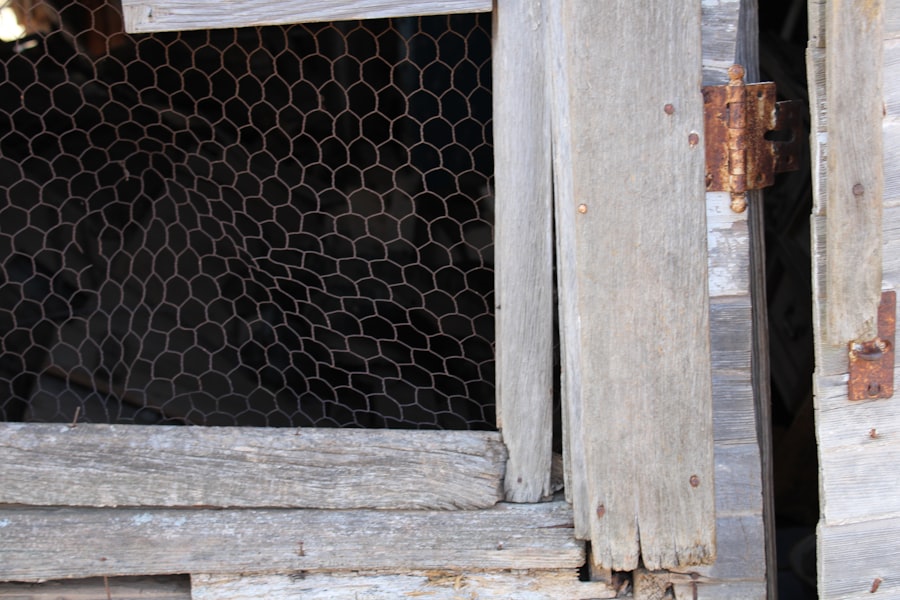
Keeping Chickens Engaged with Toys and Activities
This can include providing them with toys, such as hanging mirrors or treat dispensers, as well as creating opportunities for them to engage in natural behaviors, such as foraging for insects or dust bathing.
By providing alternative sources of entertainment, owners can help prevent their chickens from seeking out areas where they are not supposed to be and causing damage. Another way to provide alternative sources of entertainment for chickens is by introducing them to new environments or experiences. Allowing them to explore different areas of the backyard or introducing them to new objects or obstacles can help keep them engaged and stimulated.
Creating a Harmonious Backyard Environment
Additionally, providing them with opportunities to interact with other animals or even humans can help prevent them from becoming bored or restless and seeking out trouble spots in the backyard. By providing alternative sources of entertainment, chicken owners can effectively manage their behavior in a backyard setting, creating a more harmonious environment for both the chickens and themselves.
Seeking professional advice
In some cases, managing the behavior of chickens in a backyard setting may require professional advice or assistance. This could include consulting with a veterinarian or animal behaviorist who specializes in poultry behavior, as well as seeking guidance from experienced chicken owners or breeders who have dealt with similar challenges. Professional advice can help owners better understand the underlying causes of their chickens’ behavior and develop effective strategies for managing it.
Additionally, professional advice can also help owners identify any potential health issues or environmental factors that may be contributing to their chickens’ behavior. For example, certain nutritional deficiencies or parasites can lead to erratic behavior in chickens, which may require specific interventions or treatments. By seeking professional advice, chicken owners can gain valuable insights into managing their chickens’ behavior and creating a more harmonious backyard environment for both the chickens and themselves.
In conclusion, understanding the behavior of chickens is crucial when it comes to managing their behavior in a backyard setting. By choosing the right type of mulch, using physical barriers, implementing deterrents, creating designated areas for chickens, providing alternative sources of entertainment, and seeking professional advice when necessary, owners can effectively manage their chickens’ behavior and create a more harmonious environment for both the chickens and themselves.
If you’re looking for more tips on keeping chickens, you might be interested in this article on building an A-frame chicken coop. It’s a great resource for creating a safe and comfortable space for your chickens to live in.
FAQs
What are some effective ways to keep chickens out of my mulch?
Some effective ways to keep chickens out of your mulch include using physical barriers such as fencing or netting, using repellents such as citrus peels or vinegar, and providing alternative areas for the chickens to forage.
Why is it important to keep chickens out of my mulch?
It is important to keep chickens out of your mulch because they can scratch and dig in the mulch, causing it to become scattered and potentially damaging plants. Additionally, chickens may eat the mulch, which can be harmful to their health.
What are some natural repellents that can be used to keep chickens out of mulch?
Natural repellents that can be used to keep chickens out of mulch include citrus peels, vinegar, and cayenne pepper. These scents and tastes are unpleasant to chickens and can deter them from entering the mulch area.
How can I create alternative foraging areas for my chickens to keep them out of my mulch?
You can create alternative foraging areas for your chickens by providing them with designated areas for scratching and pecking, such as a designated dirt or sand patch. You can also scatter treats and feed in these areas to encourage the chickens to forage there instead of in the mulch.
Meet Walter, the feathered-friend fanatic of Florida! Nestled in the sunshine state, Walter struts through life with his feathered companions, clucking his way to happiness. With a coop that’s fancier than a five-star hotel, he’s the Don Juan of the chicken world. When he’s not teaching his hens to do the cha-cha, you’ll find him in a heated debate with his prized rooster, Sir Clucks-a-Lot. Walter’s poultry passion is no yolk; he’s the sunny-side-up guy you never knew you needed in your flock of friends!

